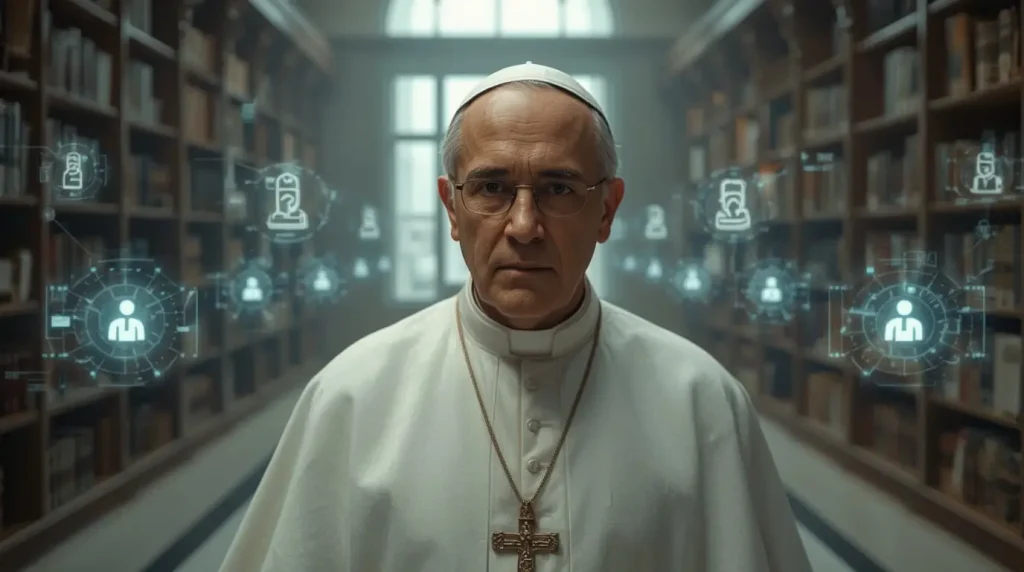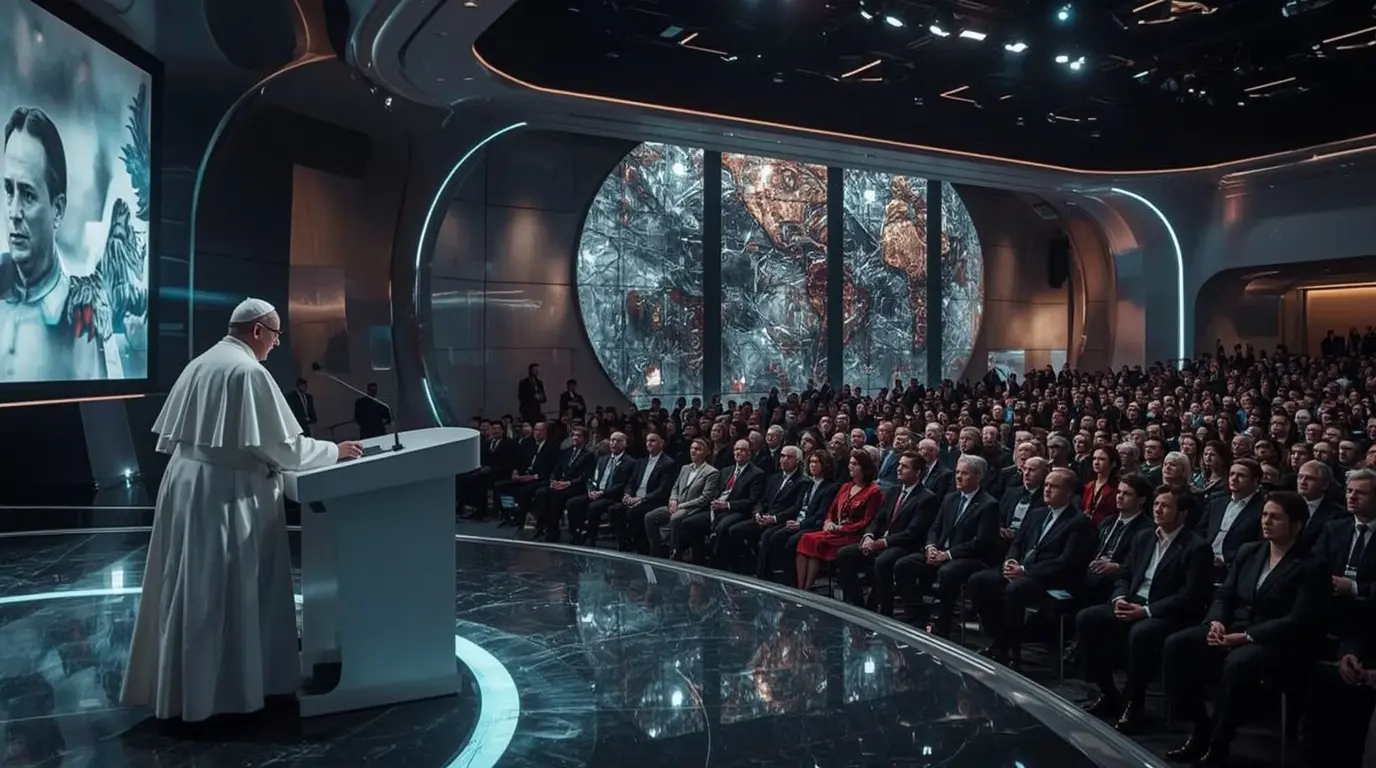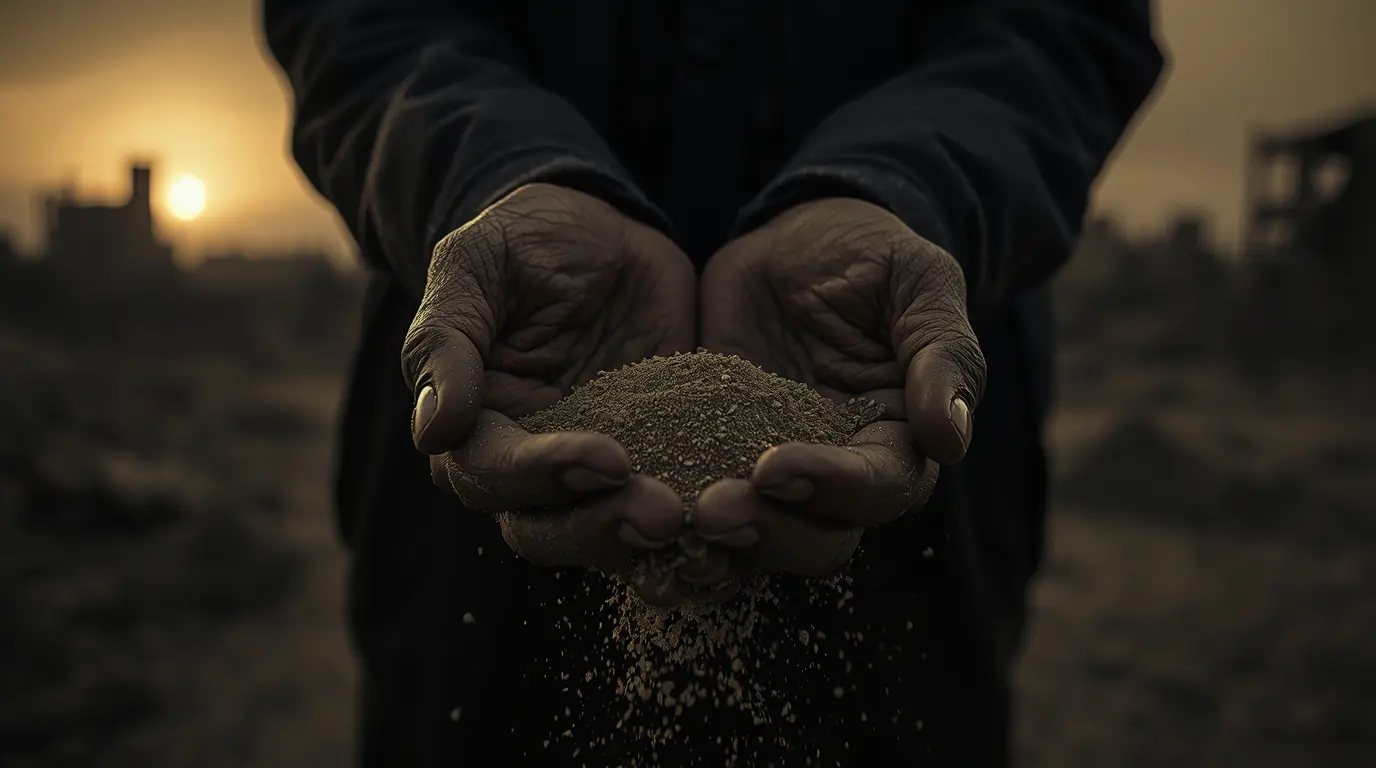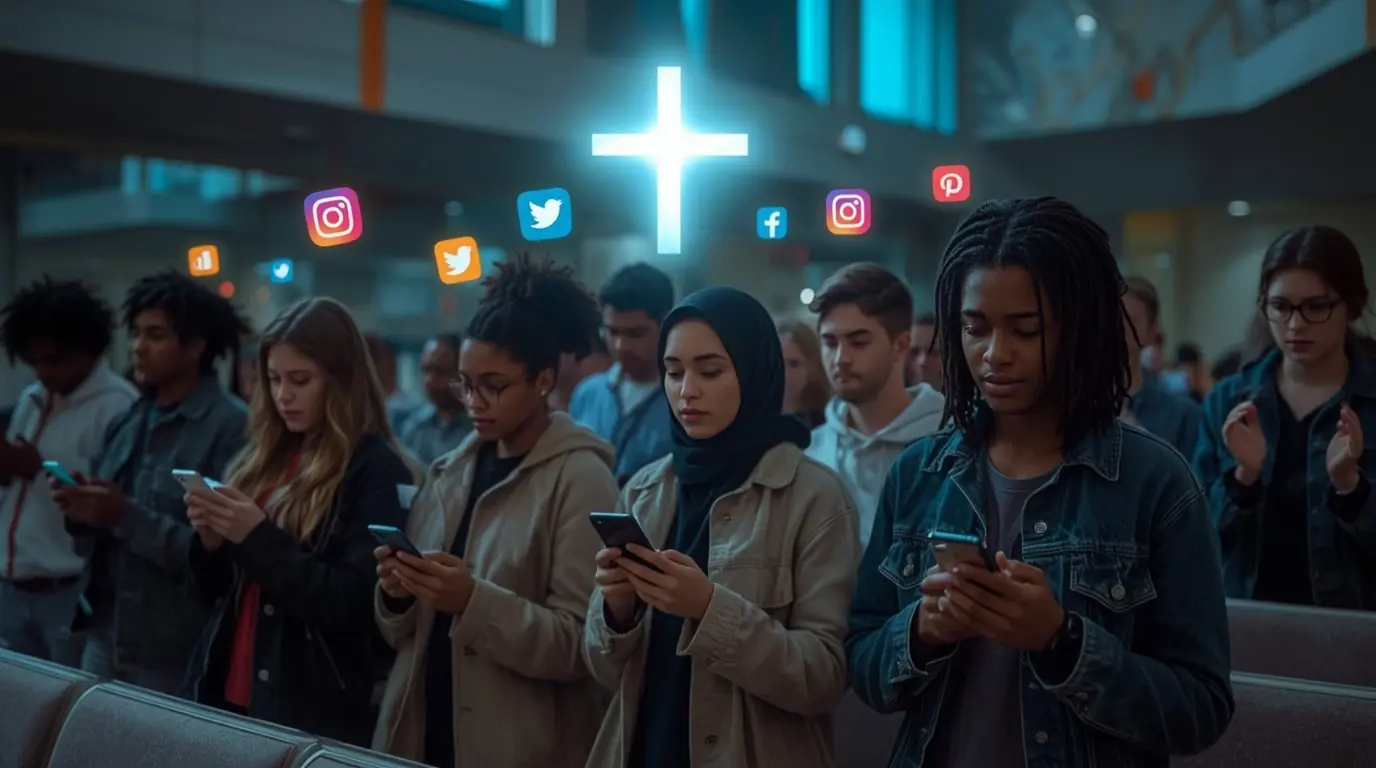In his first extended interview since taking the papacy, Pope Leo XIV spoke on urgent global problems, from artificial intelligence through American politics, and did so with the easy warmth of a pastor coupled with a sharp, analytic mind. Journalist Elise Allen conducted the wide-ranging conversation for the new book, Leo XIV: Citizen of the World, Missionary of the XXI Century, and the final text shows a pontiff increasingly troubled by technology shaping life on Earth, by growing economic divides, and by the continuing wars of Gaza and Ukraine. Leo, the first American pope, also reflected on how the Church can interact with the present U.S. administration without compromising ethical authority.
AI and Human Dignity: A Core Concern for Pope Leo
The Holy Father has grave worries about artificial intelligence and insists technology never violate human dignity. Pope Leo revealed that he turned down a Church-backed effort to produce a virtual papal figure, saying, “If there’s anyone who should not be replaced by an avatar, I doubt anyone outranks the pope.” That comment shows he values real encounters, both spiritual and social, far more than computer-generated surrogates. He cautioned that degrading real relationships risks producing a “false universe” that muddies reality, harms jobs, and may deepen economic divides that already stretch across continents.
His worries aren’t just book-talk; they hit home for most workers. Pope Leo stepped onto the balcony and named job loss through machines as a crisis waiting to break in the streets. “Human dignity is tied to the work we do,” he said, quoting his own speech, and then he revealed why he took the Leo name. It’s the same name as Pope Leo XIII, the pope who shouted “fair wage” when coal and steel took the dignity from workers a century ago.
Just as Rerum Novarum answered the factory era, this digital era of AI and robotics needs a similar moral lighthouse, Leo explained. “Technology must serve all, not just profit,” he said, visible the anxiety behind his smile.
As the pope born in Houston, American politics is both second lunch and broadcast in the chapel. “There are parts of the [U.S.] that worry me,” he said during a briefing. No, he hasn’t met President Trump yet, but he briefed aides on policies that feel more spreadsheet than soul, focus more on balance sheets than on “dignity and human support.” “Dignity again, especially in this digital age,” that’s the recurring hashtag on his speech.
How else apply the U.S.-born Pope’s American experience to immigration, to the revealed policies he and Vice President JD Vance grappled with early this year. Vance and he discussed border policies, not arguments but human stories, and Vance reached for numbers, Pope Leo for faces. Scout the talk, it’s translation work on SQL error of the heart.
Even with important issues on the table, Pope Leo said upfront he won’t get tangled in American party politics. He trusts the U.S. bishops to handle the administration up close. Still, he’s not shy about pushing back on the White House when the moment calls for it, explaining that his American identity shields him from the idea that he might misunderstand the country like some said about his Argentine predecessor, Pope Francis. Pope Leo’s stance is a careful dance: he’s both diplomatic and principled, backing peace talks while pushing for policies that treat people with dignity.

Global Conflicts: Gaza and Ukraine
Pope Leo has made it clear that pleas for aid and peace in war zones are a key part of his mission. In his first general audience, he urged that humanitarian help be allowed to flow into Gaza, calling the suffering of ordinary people “heartbreaking.” He noted that the word “genocide” is being used more and more in discussions about Gaza, but he didn’t label it that way yet, explaining that a careful definition is needed for the word to be used. He still labeled the situation “very, very grave.”
On Ukraine, Pope Leo repeated the Vatican’s offer to moderate peace negotiations between Russia and Ukraine, a move welcomed by Italy’s Prime Minister Giorgia Meloni and by U.S. President Donald Trump. Still, the mission faces hurdles since Russian President Vladimir Putin holds an international arrest warrant. The Pope condemned the “pointless killing” on Ukrainian soil and urged direct talks between the two nations, pointing to the weakened role of bodies like the United Nations.
Church Priorities: Listening, Ending Abuse, and Welcoming LGBTQ Missing Voices
The Pope set a clear agenda for his time at the helm. Central to it is the idea of synodality, a shared journey of decision-making within the Church. Leo called it an “antidote” to divides and was clear: “This is not a vote-driven democracy; it is ‘we walk together.’” The approach fuels his response to clerical abuse, a “real crisis” that remains unfinished. The Pope asked for “deep sensitivity and sorrow” toward survivors, while equally safeguarding the rights of the accused. The two needs are not oppositional; both, he insists, are necessary for renewal.
On LGBTQ issues, Pope Leo leaned toward Pope Francis’ outlook of openness, saying that Church teaching on sexuality is, in his words, “very unlikely” to shift. The message to “come as you are” stayed the same, but he insists that loyalty to the “traditional family” still matters. Overall, his tone strikes a careful balance between welcoming hearts and held doctrines.
Leadership Style and Future Directions
Pope Leo calls his shift from cardinal to papacy a “huge learning curve” but felt the pastoral side of the role fit him from the beginning. He still uses media to have long, candid talks instead of the soundbites that defined earlier public images, suggesting he prefers to tackle issues head-on rather than dodge them.
Looking further, Pope Leo pledges to stay the course on China that Francis charted, continuing diplomatic talks even as bishops’ appointments stir tensions. He also promises to raise more women into senior jobs, though he says a female diaconate is off the table for the moment. Finally, the Pope’s guiding compass is a blend of faith and reason; he wants the Church to keep advocating for human dignity in a digital age that often subtracts the human touch.
Conclusion: A Pontiff for the Digital Age
Pope Leo XIV’s recent interview shows a shepherd wrestling with the puzzles of the 21st century—everything from A.I. ethics to creeping global divides. His answers glow with loyalty to human dignity, pastoral tenderness, and a hands-on, no-nonsense style of Church governance. Since he carries the baggage of being the first American-born pontiff yet travelled broadly, the rest of his papacy promises a deft, personal touch when speaking with presidents, business luminaries, and the tech crowd. Eyes around the planet will stay riveted to how this unprecedented Holy See balances creed, currency, and code across the Benedict of the motherboard.
Source: https://edition.cnn.com/2025/09/18/europe/pope-leo-trump-interview-ai-intl
For more incredible stories of everyday news, return to our homepage.





